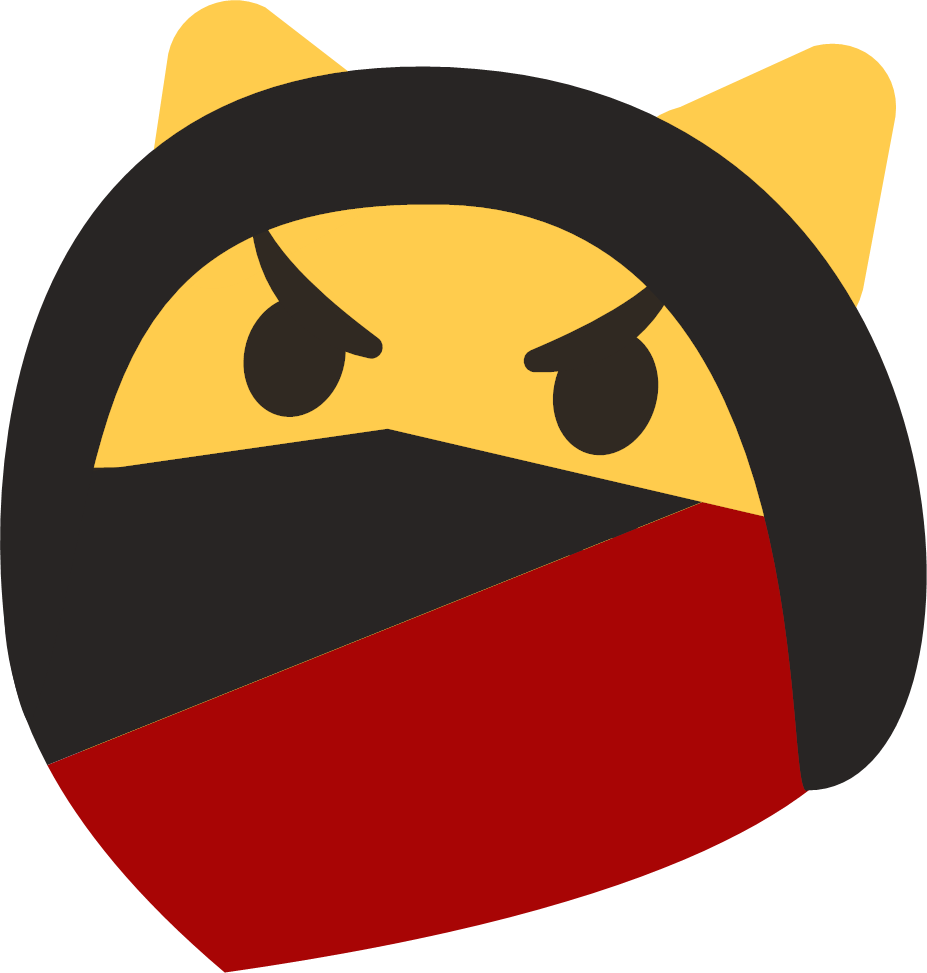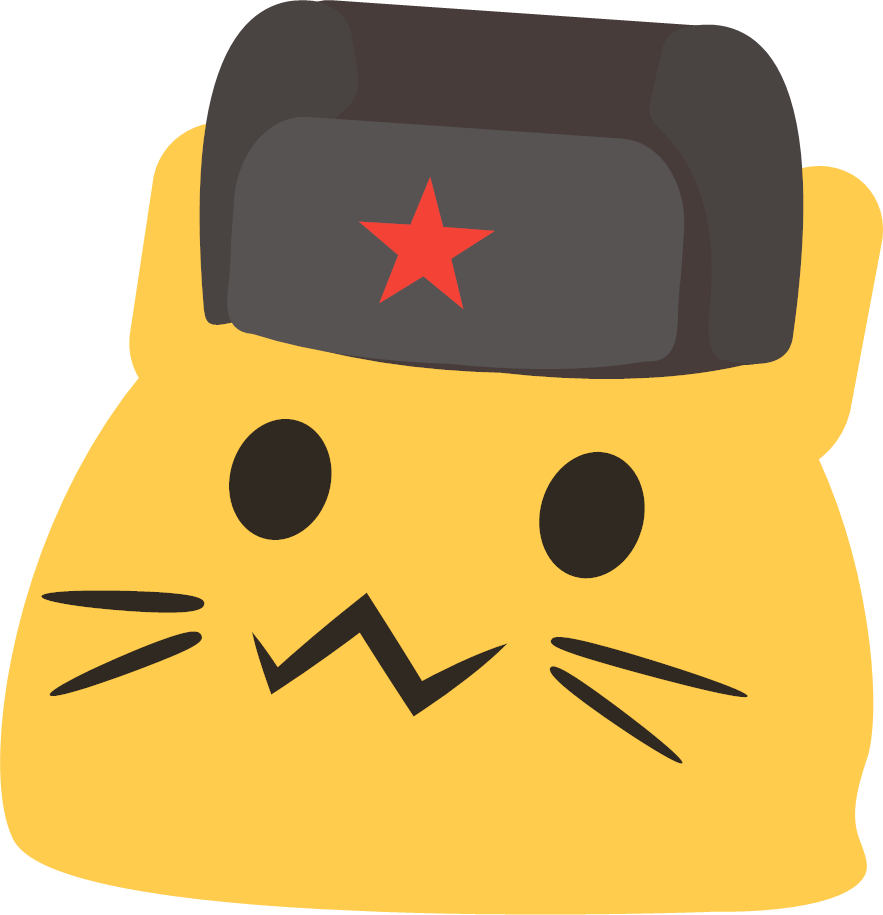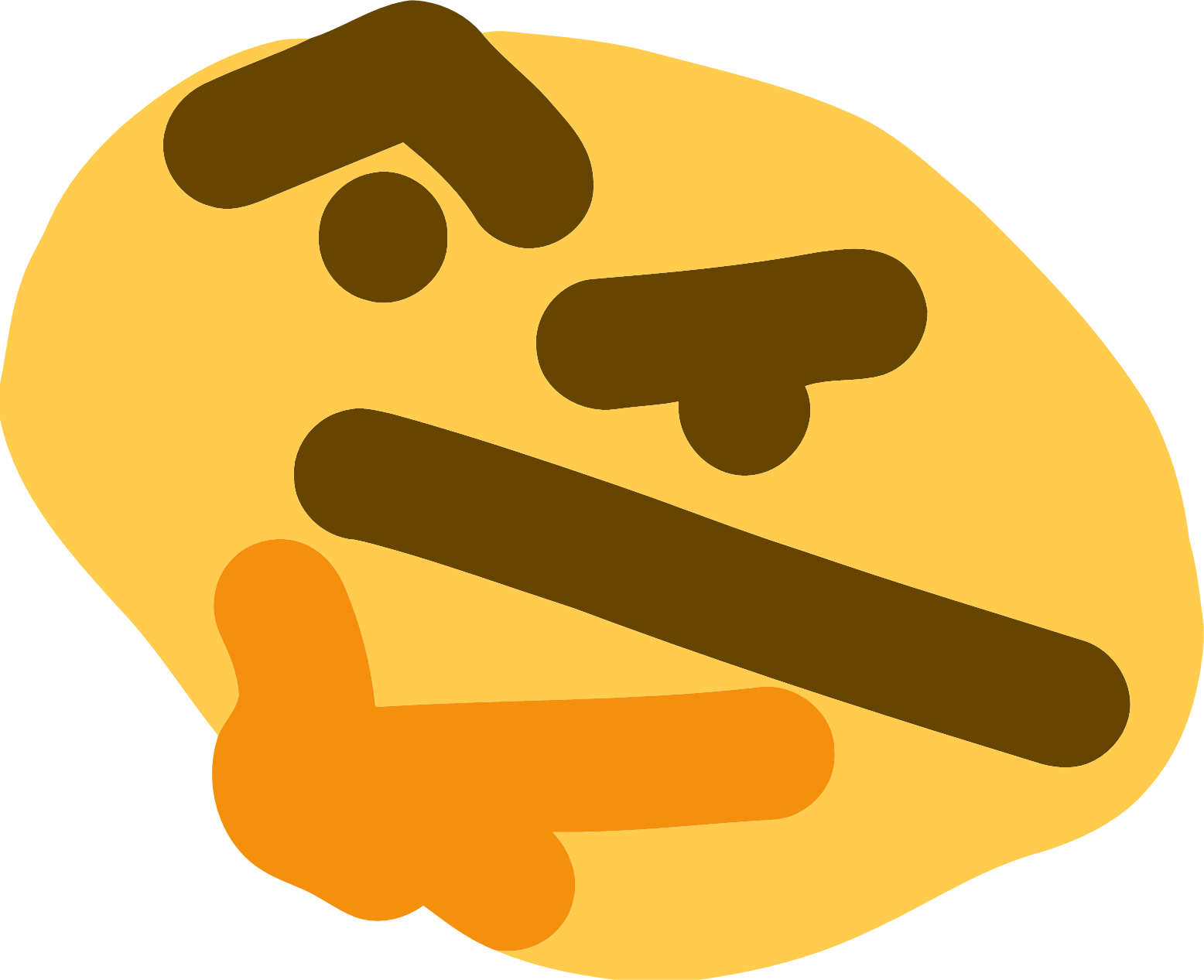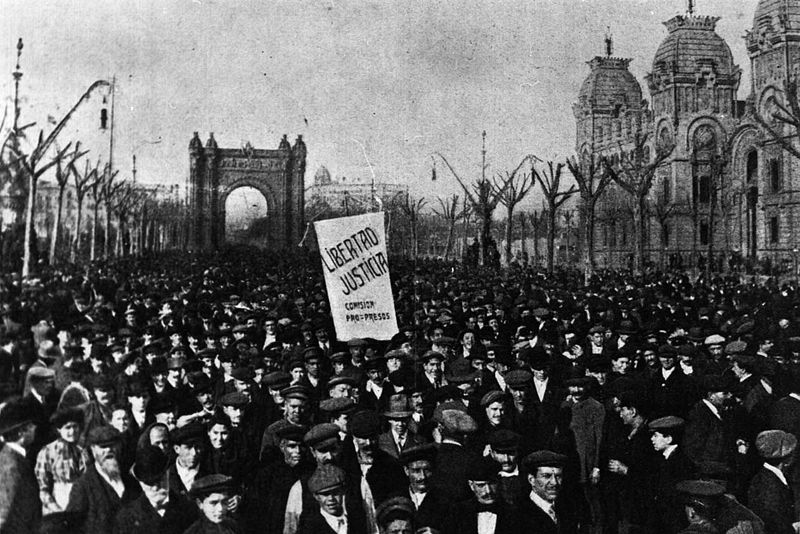The Spanish Civil War was a civil war in Spain fought from 1936 to 1939 between the Republicans and the Nationalists. Republicans were loyal to the left-leaning Popular Front government of the Second Spanish Republic, and consisted of various socialist, communist, separatist, anarchist, and republican parties, some of which had opposed the government in the pre-war period. The opposing Nationalists were an alliance of Falangists, monarchists, conservatives, and traditionalists led by a military junta among whom General Francisco Franco quickly achieved a preponderant role.
On this day in 1936, the Confederación Nacional del Trabajo (CNT) and Unión General de Trabajadores (UGT), together more than 3 million members, called a general strike, beginning the workers' revolution during the Spanish Civil War.
The strike, revolutionary and anti-capitalist in character, was called in response to a fascist military coup that had taken place on July 17th. During the general strike, civilians acquired weapons by raiding state weapons depots.
The war began after the partial failure of the coup d'état of July 1936 against the Republican government by a group of generals of the Spanish Republican Armed Forces, with General Emilio Mola as the primary planner and leader and having General José Sanjurjo as a figurehead.
The government at the time was a coalition of Republicans, supported in the Cortes by communist and socialist parties, under the leadership of centre-left President Manuel Azaña. The Nationalist group was supported by a number of conservative groups, including CEDA, monarchists, including both the opposing Alfonsists and the religious conservative Carlists, and the Falange Española de las JONS, a fascist political party. After the deaths of Sanjurjo, Emilio Mola and Manuel Goded Llopis, Franco emerged as the remaining leader of the Nationalist side.
On July 24th, the first voluntary militia, known as the Durriti Column, named after libertarian communist Buenaventura Durriti, left Barcelona for the region of Aragon. Other regiments formed, such as the anarchist Iron Column and the CNT-affiliated Red and Black Column.
Over the next three years, revolutionary Republicans began reorganizing society and production on anarchist principles and battled with the Nationalist forces, led by the fascist Francisco Franco.
The Nationalists and the Republican government fought for control of the country. The Nationalist forces received munitions, soldiers, and air support from Fascist Italy, Nazi Germany and Portugal, while the Republican side received support from the Soviet Union and Mexico. Other countries, such as the United Kingdom, France, and the United States, continued to recognise the Republican government but followed an official policy of non-intervention. Despite this policy, tens of thousands of citizens from non-interventionist countries directly participated in the conflict. They fought mostly in the pro-Republican International Brigades, which also included several thousand exiles from pro-Nationalist regimes.
International Brigades
The International Brigades were military units set up by the Communist International to assist the Popular Front government of the Second Spanish Republic during the Spanish Civil War. The organization existed for two years, from 1936 until 1938. It is estimated that during the entire war, between 40,000 and 59,000 members served in the International Brigades, including some 10,000 who died in comba
The International Brigades were strongly supported by the Comintern and represented the Soviet Union's commitment to assisting the Spanish Republic (with arms, logistics, military advisers and the NKVD)
The largest number of volunteers came from France (where the French Communist Party had many members) and communist exiles from Italy and Germany. Many Jews were part of the brigades, being particularly numerous within the volunteers coming from the United States, Poland, France, England and Argentina.
Republican volunteers who were opposed to Stalinism did not join the Brigades but instead enlisted in the separate Popular Front, the POUM (formed from Trotskyist, Bukharinist, and other anti-Stalinist groups, which did not separate Spaniards and foreign volunteers), or anarcho-syndicalist groups such as the Durruti Column, the IWA, and the CNT.
The Soviet Union provided the largest amount of foreign aid to the Republic, supplying artillery, aircraft, tanks, guns, troops, and military advisors.
The Fall
The Nationalists advanced from their strongholds in the south and west, capturing most of Spain's northern coastline in 1937. They also besieged Madrid and the area to its south and west for much of the war. After much of Catalonia was captured in 1938 and 1939, and Madrid cut off from Barcelona, the Republican military position became hopeless. Following the fall without resistance of Barcelona in January 1939, the Francoist regime was recognised by France and the United Kingdom in February 1939.
On 5 March 1939, in response to an alleged increasing communist dominance of the republican government and the deteriorating military situation, Colonel Segismundo Casado led a military coup against the Republican government, with the intention of seeking peace with the Nationalists. These peace overtures, however, were rejected by Franco.
Following internal conflict between Republican factions in Madrid in the same month, Franco entered the capital and declared victory on 1 April 1939. Hundreds of thousands of Spaniards fled to refugee camps in southern France. Those associated with the losing Republicans who stayed were persecuted by the victorious Nationalists. Franco established a dictatorship in which all right-wing parties were fused into the structure of the Franco regime.
The Republicans were defeated in 1939 and General Francisco Franco came into power, ruling Spain until his death in 1975. Many Spanish revolutionaries sought political asylum in the United States, and they would produce the paper "Espana Libre" to connect the scattered community of Spanish exiles until Franco's death. Other anti-fascists would work to undermine Franco's government from outside the country.
"Don't you see why I'll continue fighting as long as these social injustices exist?"
CNT Anarchists and the Spanish Civil War (part 1/3)

Lessons From Our National Revolutionary War Against Fascism, 1936-1969" by the Communist Party of Spain (M-L)

Spanish Civil War and Revolution Subject Archive 
Megathreads and spaces to hang out:
reminders:
- 💚 You nerds can join specific comms to see posts about all sorts of topics
- 💙 Hexbear’s algorithm prioritizes comments over upbears
- 💜 Sorting by new you nerd
- 🌈 If you ever want to make your own megathread, you can go here nerd
- 🐶 Join the unofficial Hexbear-adjacent Mastodon instance toots.matapacos.dog
Links To Resources (Aid and Theory):
Aid:
Theory:







